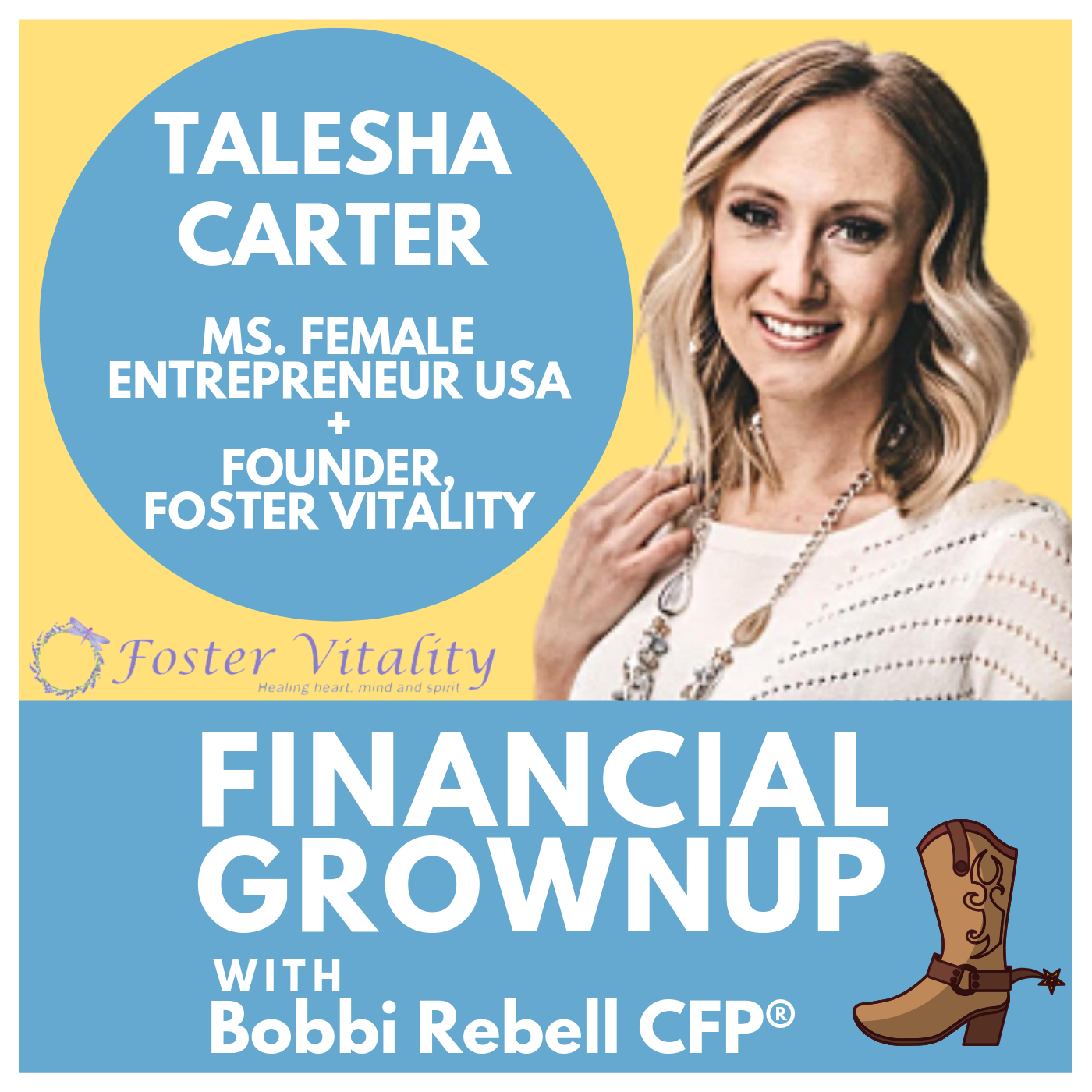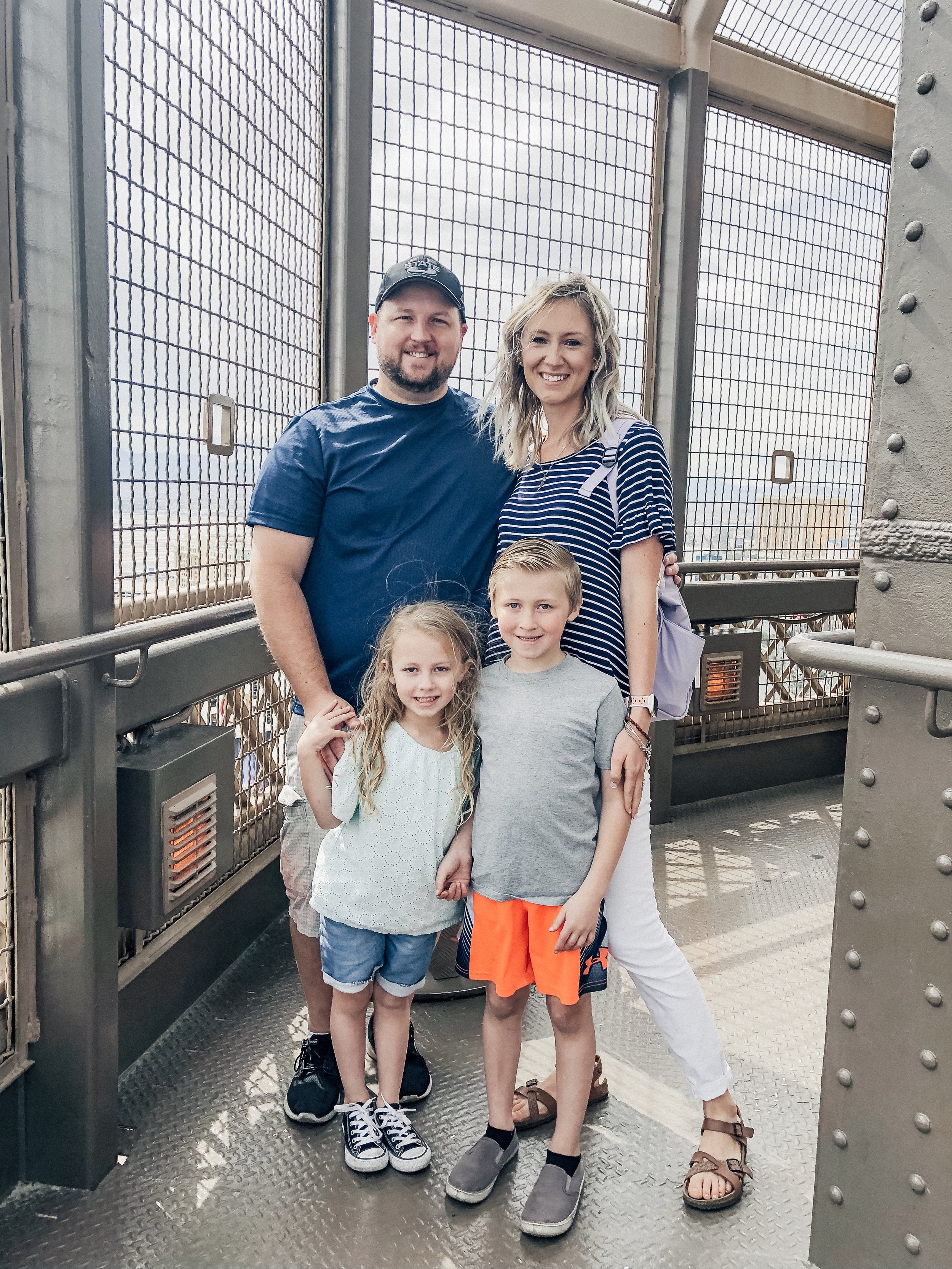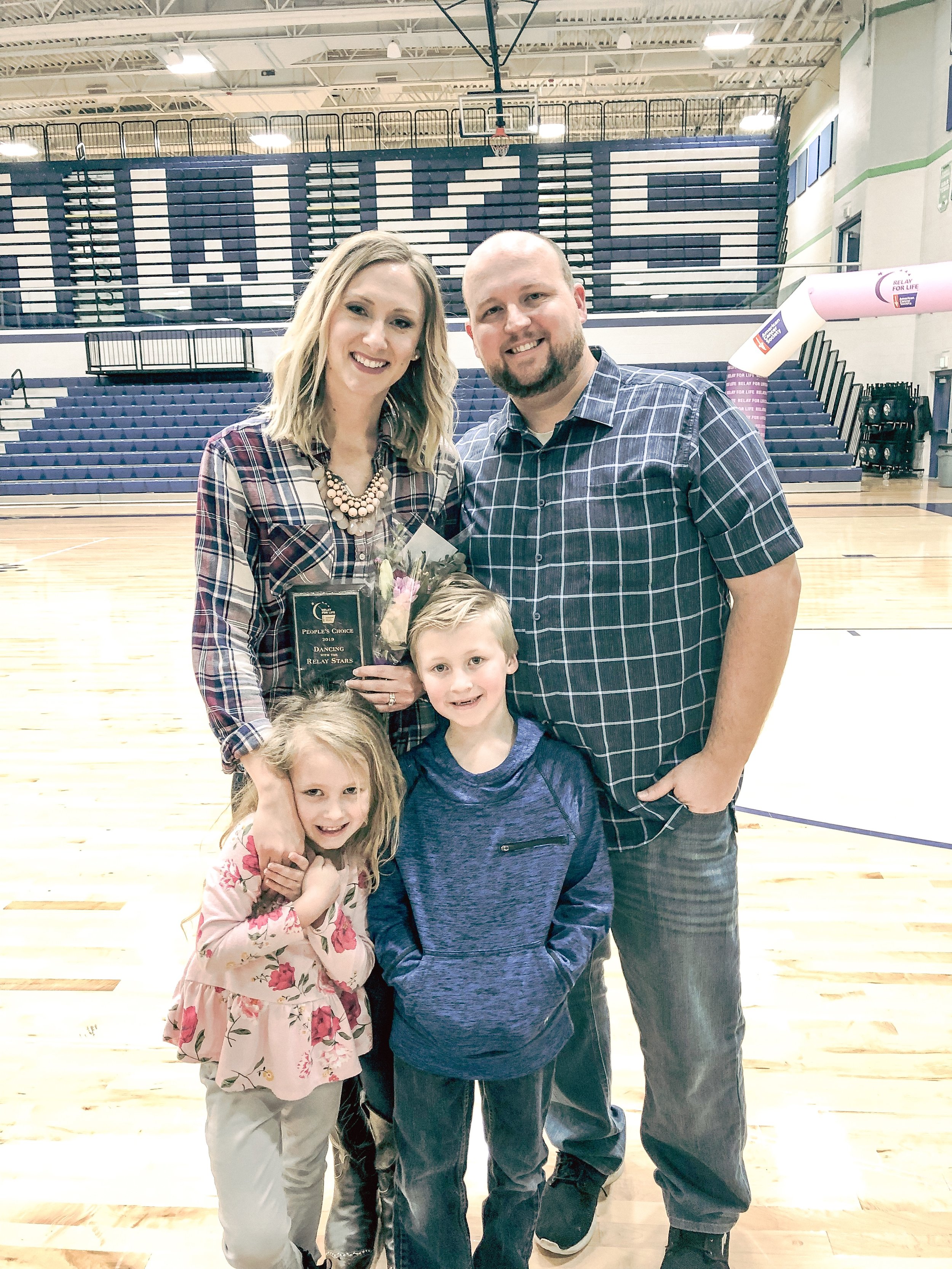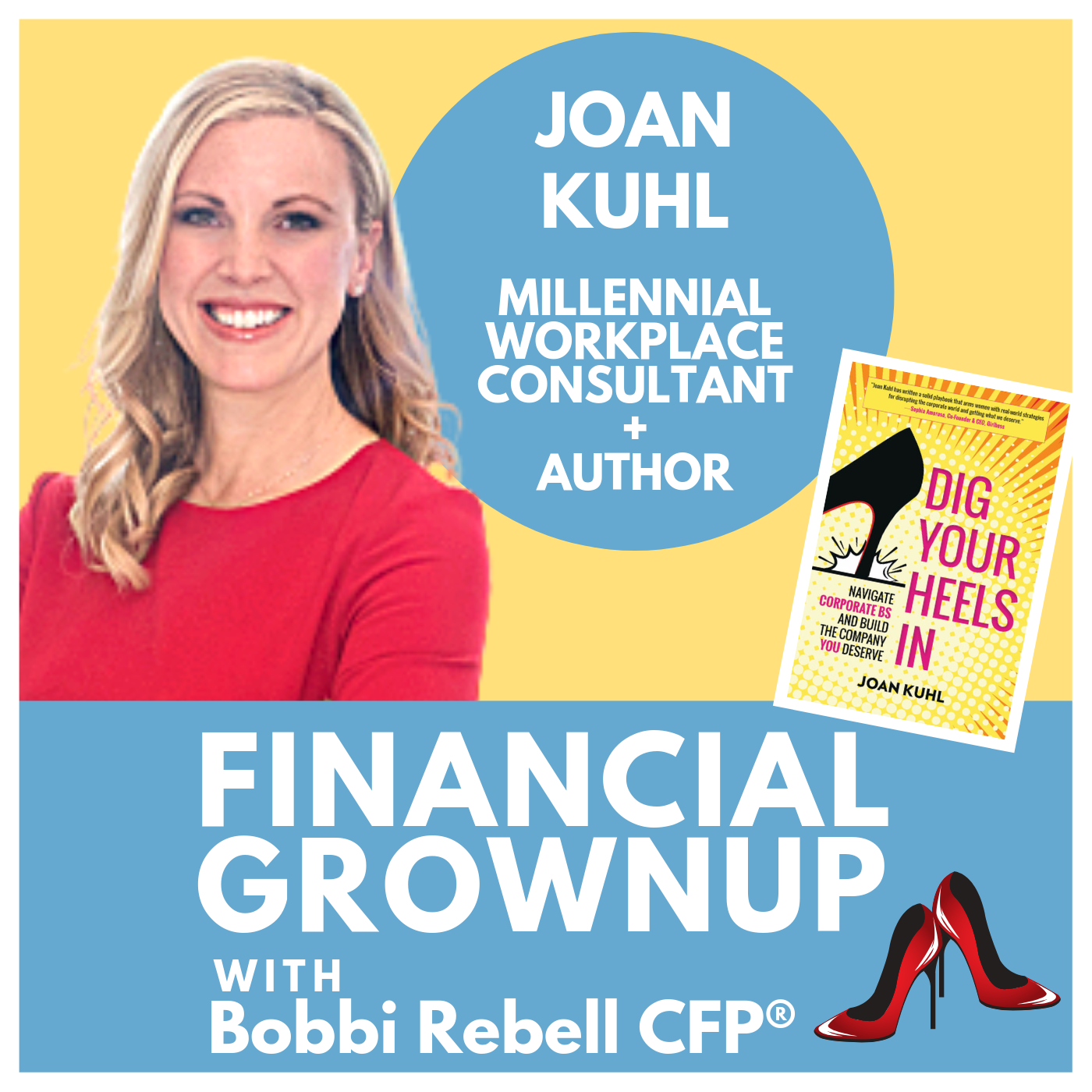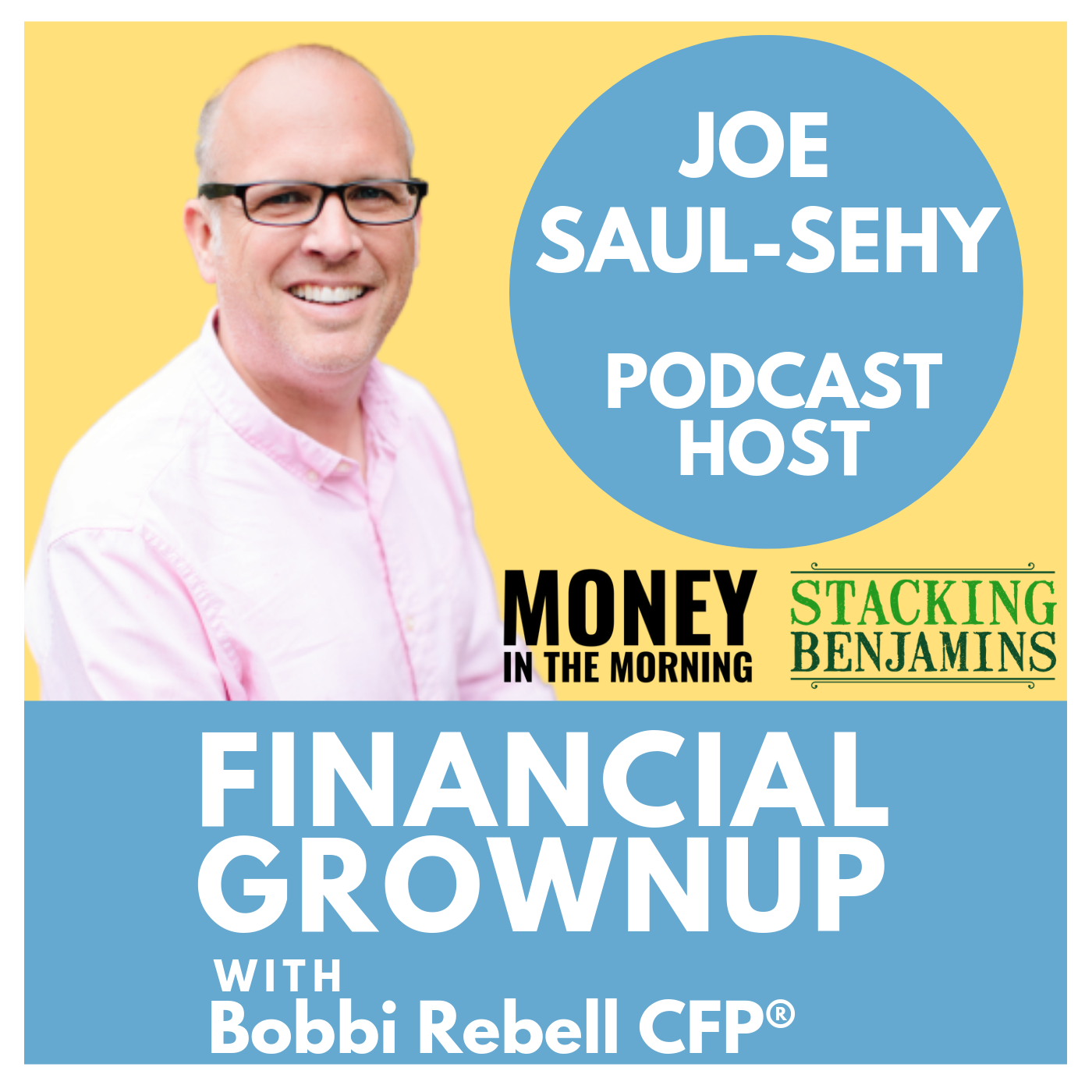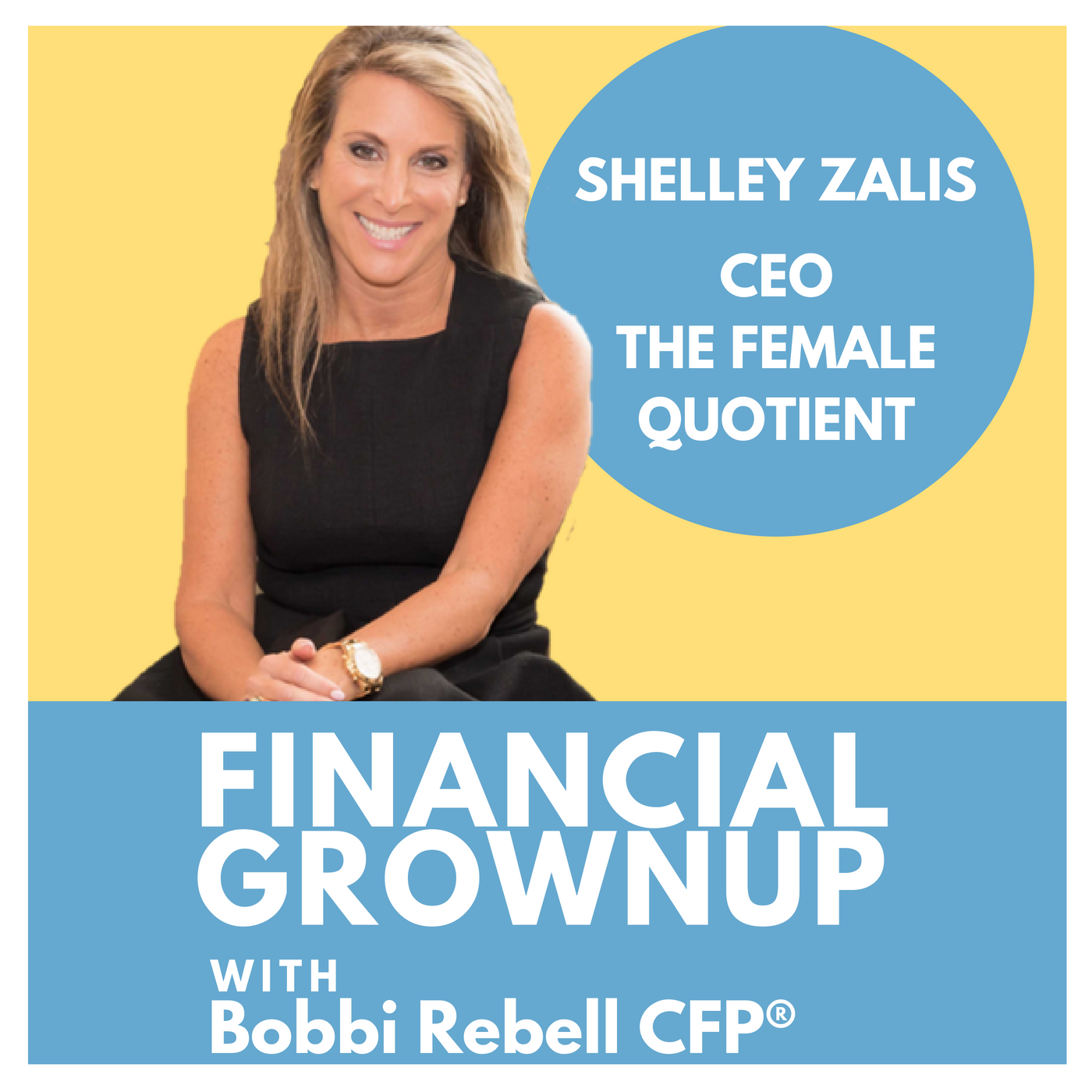Jen Hemphill and her husband believe in supporting family, but when the author of Her Money Matters, and the host of the podcast of the same name, was asked to lend money to a relative, she realized it would come at a cost to her own financial well being.
In Jen’s money story you will learn:
Jen Hemphill: The first time this came up was when we were first married, so this was almost, we'll be married almost 18 years, so this was our first year in our marriage. We're a military family, we were stationed in Clovis Air Force Base in New Mexico.
We were really still trying to get to know each other, all the newlywed stuff. He got a call from my brother-in-law, and he, my brother-in-law apparently had hit a financial hiccup, and he reached out to his brother for help. Now, I grew up in a household that was very giving. My parents literally grew up in Columbia, and they always helped people. There was always people that would stay at our home, with their family, or some friends. My parents were always givers, even when they didn't have to give.
I saw that a lot growing up. I knew the financial struggles that they dealt with.
Bobbi Rebell: Were they dealing with financial struggles because they gave more than they could afford?
Jen Hemphill: I don't think it was that. That might have been a component, but not all of the components. Right? But it was partial, because I saw them giving, and giving, but they were still trying to get their money stuff together. Right? I saw a lot of that. When I met my husband, one of the things that I love about him is his big heart. He is definitely a giver. He's also a spender.
Bobbi Rebell: Are you the saver to a spender, by the way?
Jen Hemphill: I'm also a saver.
When my brother-in-law reached out to him, we had the conversation, granted again, we were newlyweds. We were trying to figure this thing out, and I can't remember the exact $1.00 amount, but it was more than $500.00.
Bobbi Rebell: Do you know what kind of situation it was? Was it like a medical operation? Was it a business situation?
Jen Hemphill: It was behind on bills, collections. Those type of things.
Bobbi Rebell: Your husband wanted to give him a loan, not a gift, a loan?
Jen Hemphill: Well, he told me a loan, but I knew him. He's a giver. He's not going to expect it back. Where I was more, in my mind, a lender. If you're asking us to lend you money, I'm like, “Okay. You're going to pay us back.” We had debt. We had things that we needed to pay for. Things that we needed to purchase. Literally, at that time we just had our checking account, and our savings account and literally whatever savings went into our savings account, so it was the emergency account, it was when we overspent, it was for big purchases, so everything that was needed that wasn't in our checking account came from the emergency fund. It literally got depleted fast, and it also diminished our abilities to have that extra money to pay the debt that we had. Right? It was a very conflicting time. We had this conversation-
We lent him the money, or actually gave him the money, and then never saw it back.
In Jen’s money lesson you will learn:
What we've done is, we included this in our budget, so we set some money aside in a different account, and whenever a family member needs help, we just look at what's in that account, so that way it doesn't really disrupt what we're trying to do financially, and the goals that we're trying to achieve. There's a designated amount that goes in there every month, and currently has just been to help grand mom with some bills, and that's what we work with.
Bobbi Rebell: It sounds like you've basically come to terms with you're just going to gift it.
Jen Hemphill: Yes, because then emotionally we don’t get upset, “Oh, my gosh, we said we were going to lend it, we never got it back,” so I've learned and grownup.
Over the years to really, when it comes to family, and friends, and when it deals with money, it's just a gift.
In Jen’s money tip you will learn:
Basically, my money tip is, what we tend to do, let's say we're at the grocery store, and maybe we have some coupons, always strike up a sale, and we're winning. We celebrate, “Yes. I've saved X amount this trip,” but what's important here is, yes, we can celebrate the $20.00, or $10.00, whatever that amount is that we saved, but what are we going to do with that money? Because we're missing out if we're just celebrating it, that we saved that money, but we're not doing anything with it.
Literally, we have the bank up on our phone. Right? And with so many people having smart phones, you can download your bank app, and whatever that amount of money that you save, transfer it to your savings, or transfer it to pay off some debt. Whatever you deem is best in your situation. But doing that versus just leaving it in there, you know it disappears. That money doesn't have a job, if you will, it just disappears. We've seen it time and again. I know I've experienced it, I'm sure you Bobbi have experienced it yourself.
A little bit about Jen’s book:
The book, oh, my goodness. The subtitle of the book is, The Missing Truths From Traditional Money Advice, so when we think of traditional money advice, we think about, we really hear, “Save more, spend less, and get out of debt,” but I know from my own experience, I had the financial books, I've read those financial books, I applied what the experts told me, and I was still finding myself stuck. In the book, I really share the lessons that I learned, and what I found out that really kept me stuck after doing all the things right.
In my take you will learn:
Jen's story was a reminder that family really can be everything, however you define family. We should bend over backwards to help out the people that we care about in our lives. In Jen's case even though her brother-in-law did not pay back that loan, as time went on the asks for financial help from family did go down.
Financial Grownup tip number one:
Remember it's hard for people to ask you for help, so factor that in when deciding what to do when someone comes to you asking for help. If you are able to help them with their financial troubles, it's usually a better idea to just give them money. If you lend them money, it becomes yet another thing that they need to pay back in a very stressful time. Of course, it can also put stress on your relationship with them. They might avoid you. They might feel like you're judging them, if they buy something. It's better to just keep it clean, give them the money. You know what? Someday you may be in a position where you need their help, and they'll be there for you.
Financial Grownup tip number two:
Jen talked about compartmentalizing money. Setting funds aside in different accounts for different purposes. This can be a great way to deliberately save for certain things like a slush fund for relatives that need help. Another thing that I have found can make a lot of sense to do is to put a certain amount of money, or allocate a certain amount of money, maybe on an annual basis to support friends, charities, causes that they care about.
That way when people ask for you to support whatever they're involved in, it might be a charity run, or some other fundraising effort, a benefit, you can take the money out of that fund, and if at some point in the year, I mean, you got to be real, here, the funds could run out, you can tell them, “Look, I've completed my giving for the year, but I will send a donation in January.” People understand. Your resources are not unlimited even if your heart is.
EPISODE LINKS
Get Jen’s book Her Money Matters
Jen’s website - www.JenHemphill.com
Follow Jen!
Twitter - @jenhemphilll
Instagram - @jenhemphill
Facebook - @Jennifer.Hemphill
Some of the links in this post are affiliate links. This means if you click on the link and purchase the item, I will receive an affiliate commission at no extra cost to you. All opinions remain my own.













